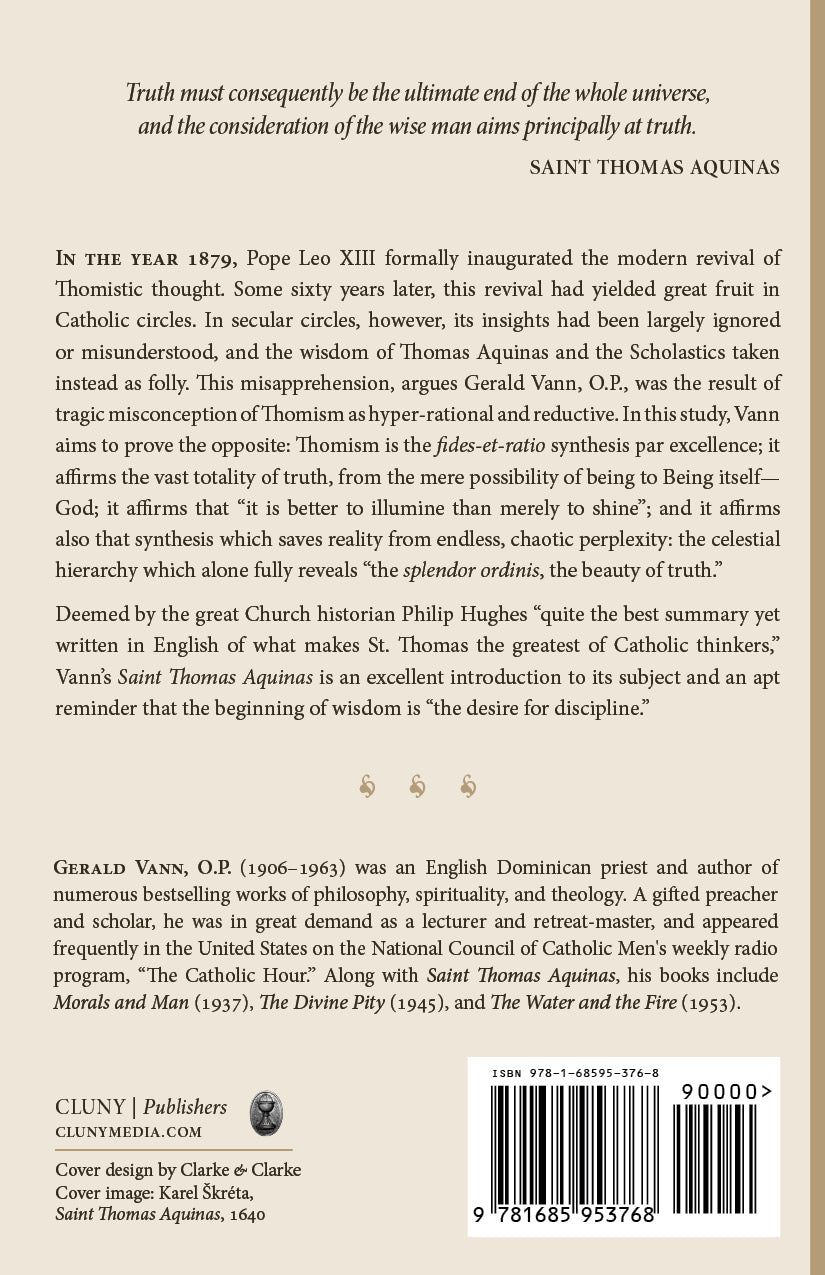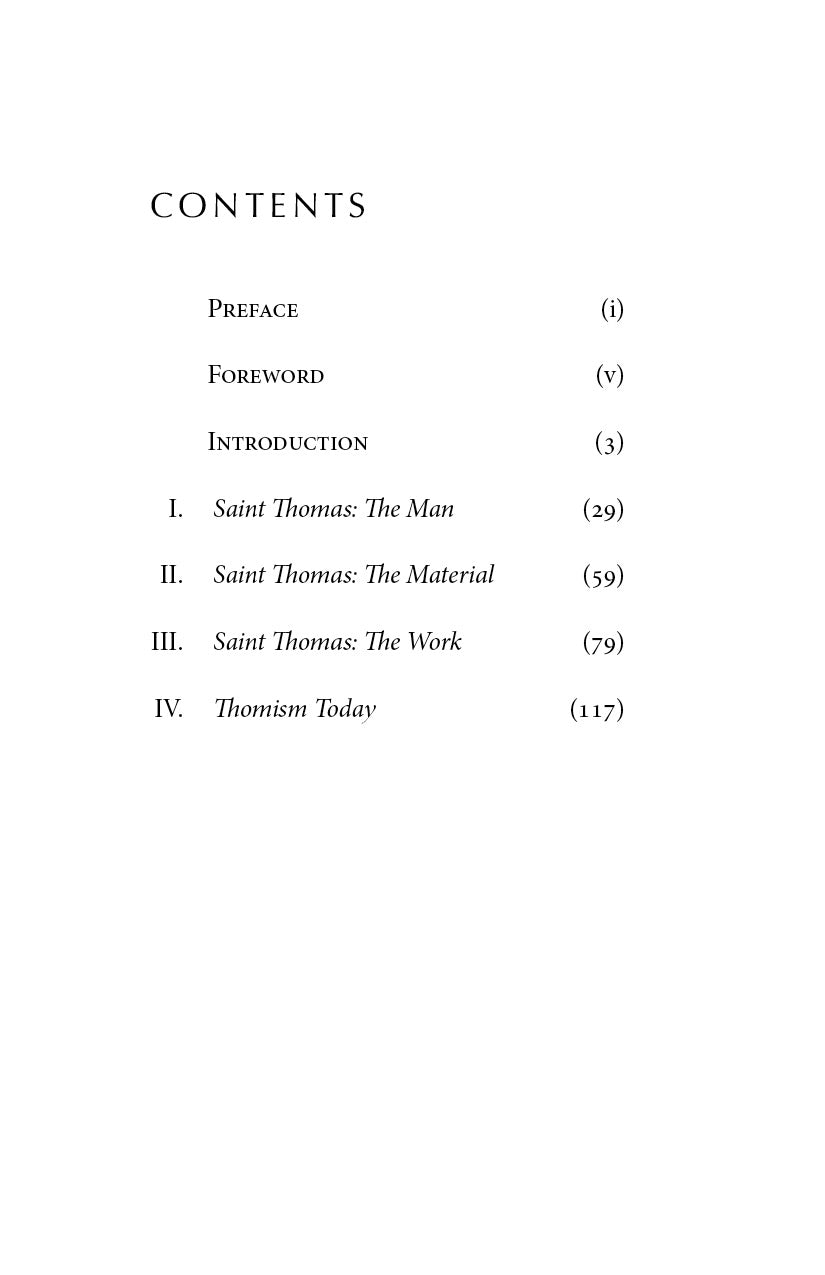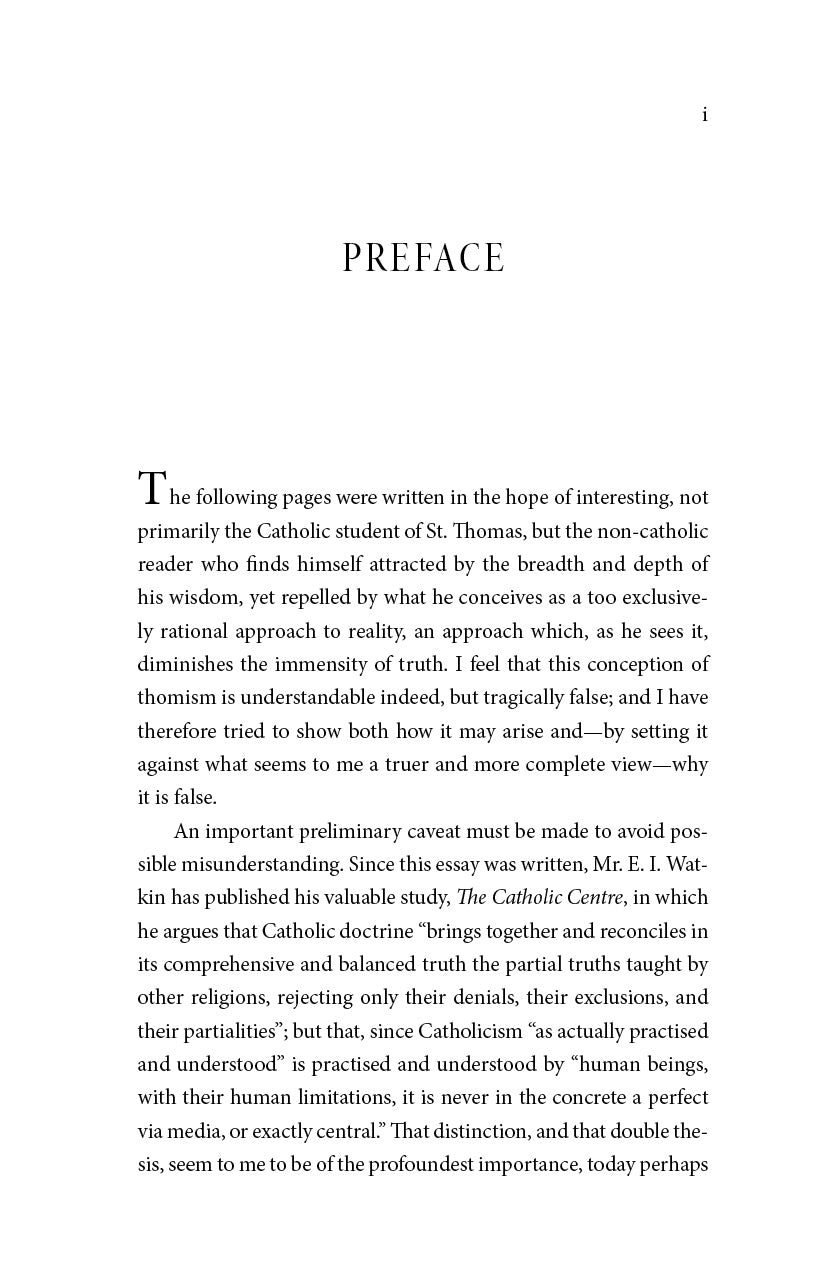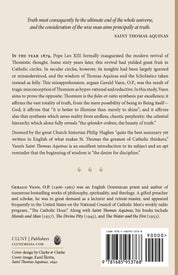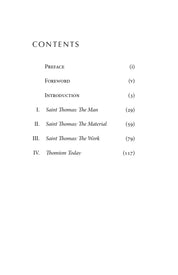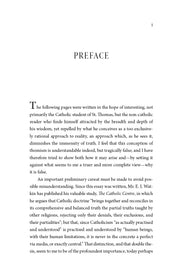Saint Thomas Aquinas
By Gerald Vann, O.P.
In the year 1879, Pope Leo XIII formally inaugurated the modern revival of Thomistic thought. Some sixty years later, this revival had yielded great fruit in Catholic circles. In secular circles, however, its insights had been largely ignored or misunderstood, and the wisdom of Thomas Aquinas and the Scholastics taken instead as folly. This misapprehension, argues Gerald Vann, O.P., was the result of tragic misconception of Thomism as hyper-rational and reductive. In this study, Vann aims to prove the opposite: Thomism is the fides-et-ratio synthesis par excellence; it affirms the vast totality of truth, from the mere possibility of being to Being itself—God; it affirms that “it is better to illumine than merely to shine”; and it affirms also that synthesis which saves reality from endless, chaotic perplexity: the celestial hierarchy which alone fully reveals “the splendor ordinis, the beauty of truth.”
Truth must consequently be the ultimate end of the whole universe, and the consideration of the wise man aims principally at truth. (Saint Thomas Aquinas)
Deemed by the great Church historian Philip Hughes “quite the best summary yet written in English of what makes St. Thomas the greatest of Catholic thinkers,” Vann’s Saint Thomas Aquinas is an excellent introduction to its subject and an apt reminder that the beginning of wisdom is “the desire for discipline.”
Gerald Vann, O.P. (1906–1963) was an English Dominican priest and author of numerous bestselling works of philosophy, spirituality, and theology. A gifted preacher and scholar, he was in great demand as a lecturer and retreat-master, and appeared frequently in the United States on the National Council of Catholic Men's weekly radio program, “The Catholic Hour.” Along with Saint Thomas Aquinas, his books include Morals and Man (1937), The Divine Pity (1945), and The Water and the Fire (1953).
* * *
Paperback: 162pp.
ISBN: 978-1685953768


